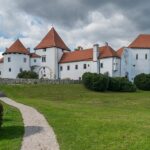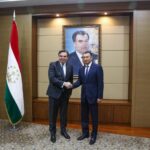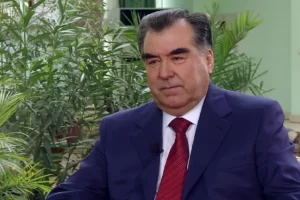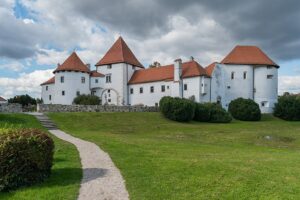With the support of the European Union, cross-border cooperation between Croatia, Bosnia and Herzegovina, and Montenegro represents this region’s foundation of sustainable development and European integration. This was emphasised at the conference of the Interreg IPA Cross-Border Cooperation Programme Croatia – Bosnia and Herzegovina – Montenegro 2014-2020 under the theme “Together we Shape the Future.”
During the conference that gathered representatives from the three countries, the results achieved during the IPA II programme framework were showcased and covered the financial period from 2014 to 2020.
During the opening of the conference, State Secretary in the Ministry of Regional Development and EU Funds of the Republic of Croatia Domagoj Mikulić congratulated all beneficiaries on their achievements. He highlighted that the implemented projects have contributed to improving infrastructure, increasing economic activity, and creating new jobs in the cross-border region.
“Our joint efforts in implementing the programme have significantly contributed to improving the quality of life in this cross-border area and in addressing local needs and challenges. Interreg programmes embody one of the fundamental values of the EU, which is cooperation between people, regions, and countries. Our participation in Interreg programmes is crucial for regional development and the establishment of good neighbourly relations,” Mikulić emphasised.
Elvira Habota, Director of the Directorate for the European Integration of Bosnia and Herzegovina, addressed the conference on behalf of the National body of Bosnia and Herzegovina. She highlighted that the purpose of territorial cooperation programmes is to help overcome challenges that states cannot solve on their own.
“Without the support of this trilateral programme, we would not have, for example, more accessible healthcare services in rural areas, telemedicine equipment in cities, strengthened capacities to combat natural disasters, restored tourist routes, and digitised cultural heritage. The EU cohesion policy and its instruments, such as this programme, show us the importance of things that are not often at the top of priorities but instantly improve the lives of those we often call ordinary people,” noted Habota.
Bojan Božović, State Secretary at the Ministry of European Affairs of Montenegro, stated that today’s conference is a kind of culmination of the very successful cooperation between the three states. He reminded that the total EU support for the 59 implemented projects amounts to over €57.2 million.
“Cross-border cooperation is one of the foundations of European integration because through institutional partnership and exchange of experiences with neighbours, citizens can feel the concrete benefits of the EU membership. I am convinced that in the next seven-year period we will justify the trust of the European Union, which has doubled funds for the new programme, and get excellent projects that will contribute to a better quality of life and even stronger cooperation between the three states,” Božović emphasised.
Liselotte Isaksson, Deputy Head of the Cooperation Sector at the Delegation of the European Union to Montenegro, greeted the conference on behalf of the EU. She highlighted that the EU is proud to have supported these projects as they have improved the lives of people living in the areas covered by the programme.
“Cooperation across borders is fundamental to the idea of a united Europe, and a powerful vehicle to build prosperity across the continent. Looking ahead, the EU and the three countries recently signed a new agreement, making available as much as €107 million for further and enhanced support in the next few years,” Isaksson said.
The results of the cooperation between institutions and organisations from Croatia, Bosnia and Herzegovina, and Montenegro were presented at the conference and short films about implemented projects was premiered. The project beneficiaries shared their experiences in the implementation of projects through four panel discussions divided by programme priorities (Public Health and Social Protection, Disaster Risk Prevention and Energy Efficiency, Tourism and Culture, and Strengthening Competitiveness).
The Interreg IPA Cross-Border Cooperation Programme Croatia – Bosnia and Herzegovina – Montenegro 2014-2020 is a trilateral programme co-financed by the European Union through the Instrument for Pre-accession Assistance (IPA II). The programme’s goal is to strengthen social, economic, and territorial development in the cross-border area of Croatia, Bosnia and Herzegovina, and Montenegro.
Cooperation between the three states continues through the new Interreg VI-A IPA Programme Croatia – Bosnia and Herzegovina – Montenegro 2021-2027, implemented within the IPA III programme framework.
Source : Europa.eu






































